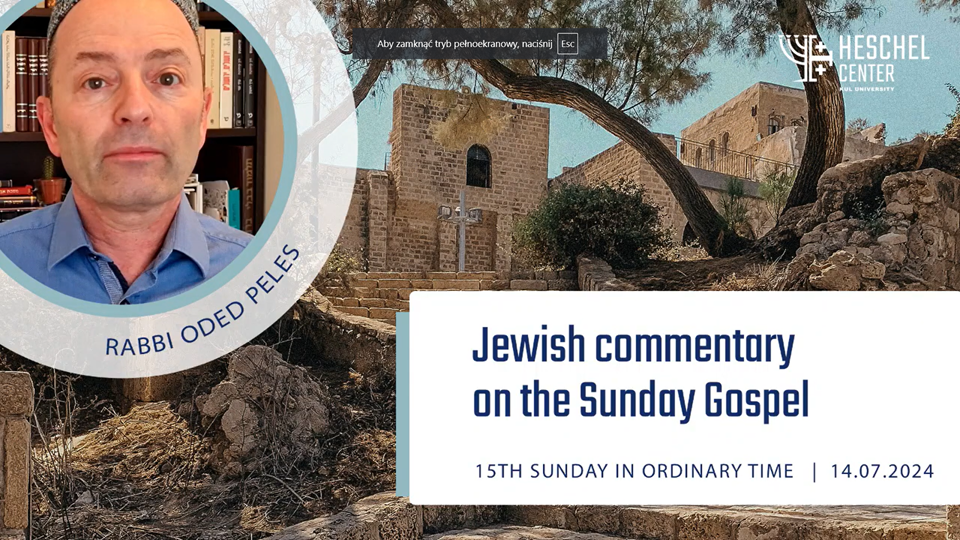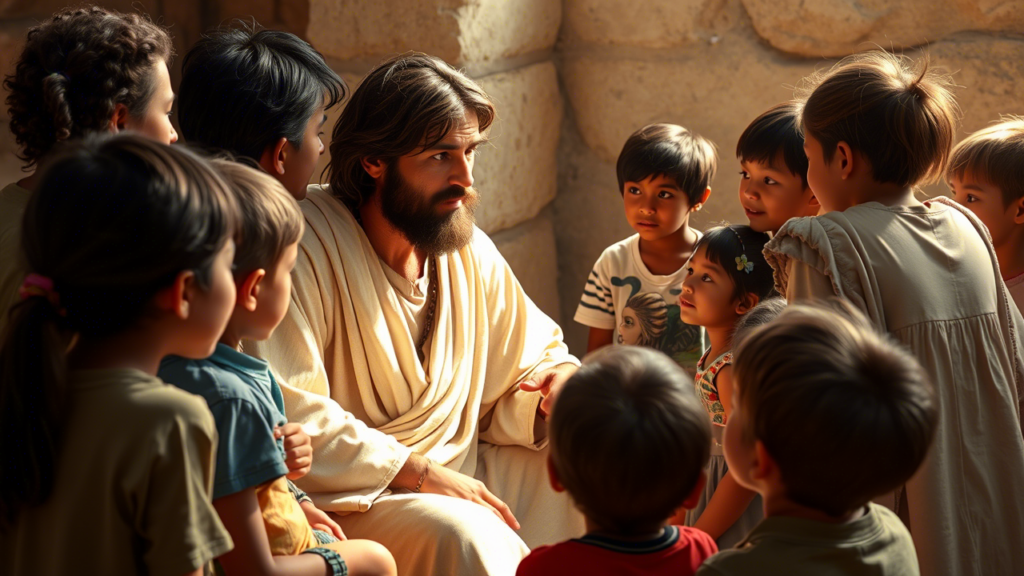The importance of hospitality in Jewish culture
Greeting people with peace, welcoming them into our homes, and assisting them in their departure are fundamental themes and values recorded in Jewish scripture and demonstrated in our daily lives – stresses Rabbi Oded Peles, Israeli educator and tour guide, in a commentary for the Heschel Center of the Catholic University of Lublin’s, for Sunday, […]

Greeting people with peace, welcoming them into our homes, and assisting them in their departure are fundamental themes and values recorded in Jewish scripture and demonstrated in our daily lives – stresses Rabbi Oded Peles, Israeli educator and tour guide, in a commentary for the Heschel Center of the Catholic University of Lublin’s, for Sunday, July 14.
The reading of the Gospel of Mark 6:10 reminds us of Matthew 10:12-13. Jesus instructs the disciples: “As you enter a house, wish it peace. If the house is worthy, let your peace come upon it. If not, let your peace return to you.” Greeting people with peace, welcoming them into our homes, and assisting them in their departure are fundamental themes and values recorded in Jewish scripture and demonstrated in our daily lives.
Hospitality in Jewish Scripture and Commentaries
In the Bible, we find many characters who welcome guests into their homes, such as Lot, Job, and more. But according to the sages, the ultimate host is Abraham. While he is ill and recovering, God himself comes to visit Abraham. During God’s visit, Abraham spots three guests approaching his tent. He asks God to forgive him and wait for him while he runs to welcome the three angels.
“He said: My lord, pray if I have found favor in your eyes. Pray, do not pass by your servant!” (Genesis 18:3).
The Talmudic sages learned an astonishing lesson from Abraham’s hospitality toward his guests: “Rabbi Judah said: Welcoming and receiving guests is an act of even greater importance than receiving the Divine Presence!” (B. Talmud, Shabbat 127a.) Moreover, the Bible shows that hospitality should extend beyond welcoming and feeding guests, as Sarah and Abraham did; accompanying them as they depart is even more important.
“The men arose from there and looked down upon the face of Sodom, and Abraham went with them to escort them.” (Genesis 18:16).
Maimonides rules very clearly: “The reward one receives for accompanying guests is greater than all of the others. This is a statute that Abraham our Patriarch instituted and the path of kindness he followed. He would feed wayfarers, provide them with drink, and accompany them. Showing hospitality for guests surpasses receiving the Divine Presence … Accompanying them is greater than showing them hospitality.”
Why Show Hospitality?
As is written in Genesis 21: 33, “[Abraham] planted a tamarisk tree at Beer-Sheba.” Rashi, the great French commentator, explains that Abraham and Sarah would host guests regularly. When Abraham planted the tree, he established “an inn for accommodation that included all kinds of fruits.”
Our patriarchs and matriarchs created a precursor to the modern hospitality industry. But instead of requesting payment for the comfort they provided their guests, Rashi teaches us that they simply asked guests to bless God for the food and drink he provided. Maimonides explains that the source and the reason for the commandment to be hospitable is based on Leviticus 19: 18: “Love your neighbor as yourself.” This implies that whatever you want others to do for you, you should do for them.
Hospitality as an Expression of Peace
“Peace upon you, ministering angels, messengers of the Most High … Come in peace, messengers of peace” is a poem sung by Jewish people every Friday night upon returning home from synagogue prayers. Angels of peace are greeted with peace as we welcome them into our homes on Shabbat. The value of greeting guests with peace is highly regarded in Jewish tradition and culture and therefore embedded within many Jewish blessings and names.
One of God’s names is Shalom, which means “peace” in Hebrew. The meaning of the name of his sacred city of Jerusalem is: “They shall see peace.”
God almighty treats us as guests in his earthly residence and blesses his people with peace: “The Lord bestows his favor upon you and grants you peace!” (Numbers 6:26).
About the Author
Rabbi Oded Peles – cantor, musicologist, Israeli educator and tour guide. Oded Peles was born in Petach Tikva, Israel to a Dutch-German Jewish family. Following in the footsteps of his grandfather, a renowned cantor of the Rotterdam synagogue, the Netherlands, Oded has served and performed as a Cantor in communities worldwide, for over thirty years.
Related

Explaining Holy Week to Our Children: A Journey of Faith and Hope
Laetare
11 April, 2025
4 min

Christian Leadership in Business: A Model of Humility, Justice, and Solidarity
Javier Ferrer García
10 April, 2025
3 min

Guiding Our Decisions with God’s Will in Daily Life
Patricia Jiménez Ramírez
10 April, 2025
4 min

What are you going to do with your life?
Luis Herrera Campo
10 April, 2025
2 min
 (EN)
(EN)
 (ES)
(ES)
 (IT)
(IT)

